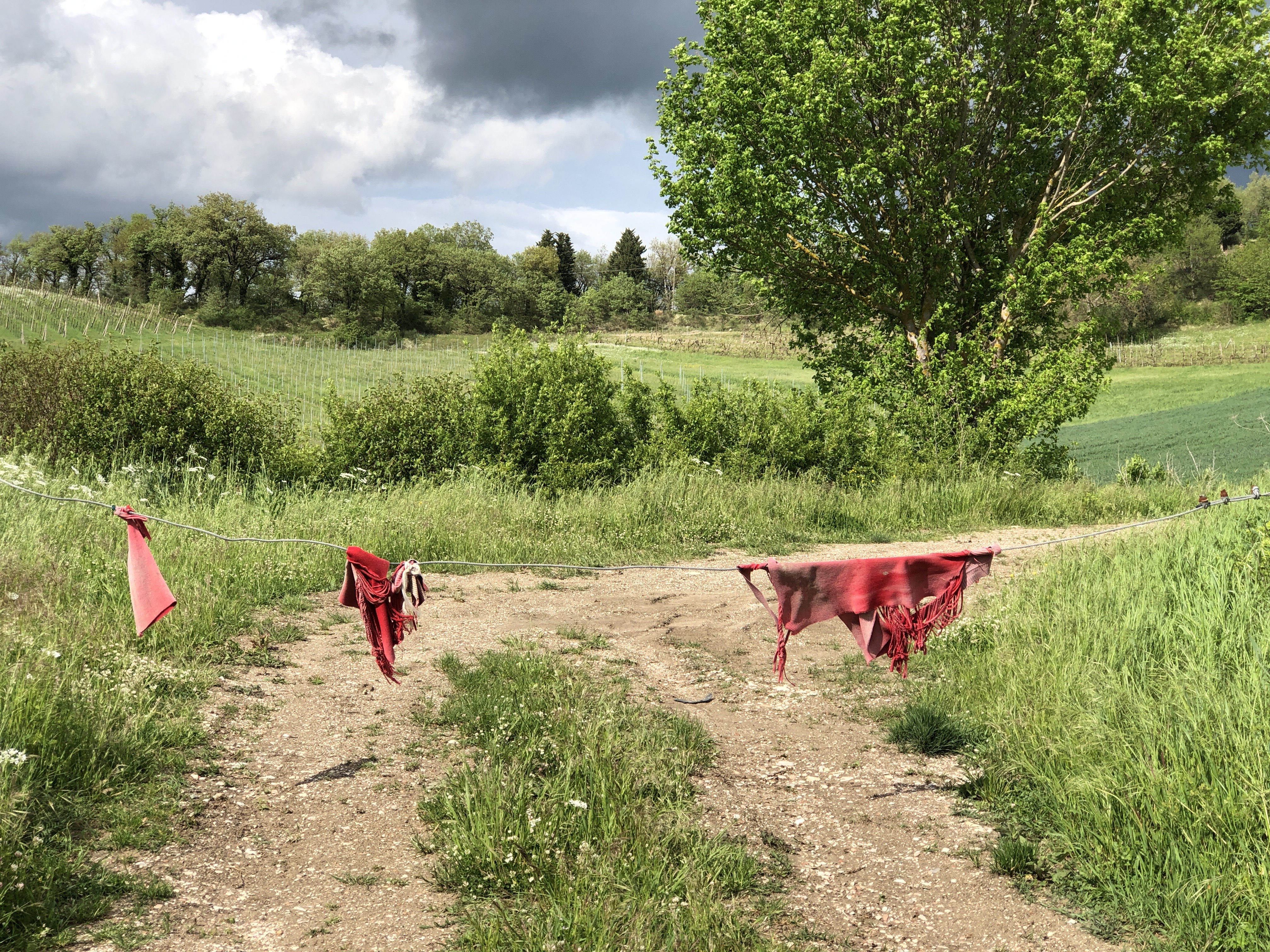
Ash Maria
on translating Paulius Širvys
Before translating Paulius Širvys, I had made an intentional effort to avoid any attempt at translating Lithuanian poetry. Lithuanian has an incredibly rich catalog of intransitive verbs, alongside highly productive morphology, which leads to countless considerations that the translator must mull over. For the sake of capturing the poem’s rhythm and feeling, nuances must be removed. To illustrate this point, I will explain the layers in the Lithuanian word besitrindamos. The root of the word is -trin- which comes from the verb trinti meaning “to rub.” -si- is the reflexive affix. Be- is a prefix to denote that the action is happening for an indefinite amount of time. -damos is the feminine plural half-participle suffix to denote that the action is taking place in tandem with another. A long-winded, yet still insufficient, translation of besitrindamos might be “while rubbing against one another for some time.”
Luckily, this poem did not include any words that were so complex, though there were still plenty of difficult decisions that I had to make. In the second and fourth lines of the poem, Širvys creates a linguistic harmony through the usage of dainą and dienų, meaning “song” and “day” respectively. Unfortunately, I was unable to find any way to recreate this harmony using the same simple language. This original poem also takes advantage of colloquialisms to reduce Lithuanian’s sesquipedalian morphology. This most often occurs with verb endings. For example, in formal Lithuanian it would be daireisi not daireis in line three, and baltame instead of baltam in line four. Again, I was unable to recreate this effect. In lines five and six, Širvys writes the same word, neatmeni, with the meaning of “you don’t remember.” For the sake of finding an equivalent rhyme in English in line seven, I had to make a slight departure from the original’s consistency.
When sharing my translation with a Lithuanian writer friend, the last line was where they had their only reservation with it. In Lithuanian, the word palik is the imperative form of palikti meaning “to abandon/leave behind or in its current state,” but just writing “leave,” as my friend suggested, felt too ambiguous. Therefore, I had to affix the words “I want you to” in order to make it more clear. My heart also sank when I read this line for the first time, as I came across the word ilgesys, which does not have a direct translation in English. It is similar to the concepts of saudade in Portuguese and toska in Russian, but nonetheless the concept is deeply rooted in Lithuanian culture and history. From conversations with Lithuanian friends, the best way I can describe ilgesys is as the following: “an unsettled, arcane longing for a time, place, or person forever out of reach.” In the contemporary Lithuanian conscious, ilgesys is often understood in reference to the idealized free Lithuania of the interwar years.
about the author
Paulius Širvys (1920 – 1979) was a popular Lithuanian poet and journalist who spent his childhood in a free Lithuania, but his adult life entirely under occupation. After the death of his parents and brother at an early age, Širvys was placed in an orphanage. He pursued the life of a rural farmer until the beginning of World War II, when he moved to Vilnius to receive military training. While serving, he was able to survive despite twice being captured by the Nazis. However, in 1944, he was badly injured as a combatant in the Red Army. A decade after the war, he devoted his energy to writing, serving as editor for the Lithuanian Writers’ Union’s magazine Literatūra ir menas (Literature and Art). He then studied at the Maxim Gorky Literature Institute in Moscow. In 1973, he received the Lithuanian SSR State Prize for his poem Ilgesys – ta giesmė (Longing is this Song).
He is no longer a household name in Lithuania today, but in literary circles he is still considered to be one of the most important writers of the Soviet period. In 1995, a poetry award (Paulius Širvio literatūrinė premija) was founded in his honor. Like other Soviet artists, his early works were in the socialist realist style and were largely concerned with issues of war. His later works were much more romantic, with the Lithuanian concept of ilgesys being a common focal point of this style of writing. The poems from this period have an intimate levity through the frequent usage of alliteration and parallelism, in addition to a disposition for Lithuanian folk imagery and language.
about the translator
Ash Maria is a first-generation college student double-majoring in anthropology and Russian and Eastern European studies at Pomona College. Despite entering college monolingual, at Pomona he was able to study Eastern Armenian, French, German, Lithuanian, Portuguese, and Russian. They spent the last summer living in Vilnius, Lithuania, where they completely fell in love with the Lithuanian language and realized that they wanted to spend their career studying and translating its literature. He has also published poetry translations of Anton Ochirov’s work from Russian and translated for the independent media outlet Meduza. They are currently applying to Ph.D. programs in both comparative literature and Slavic studies.

